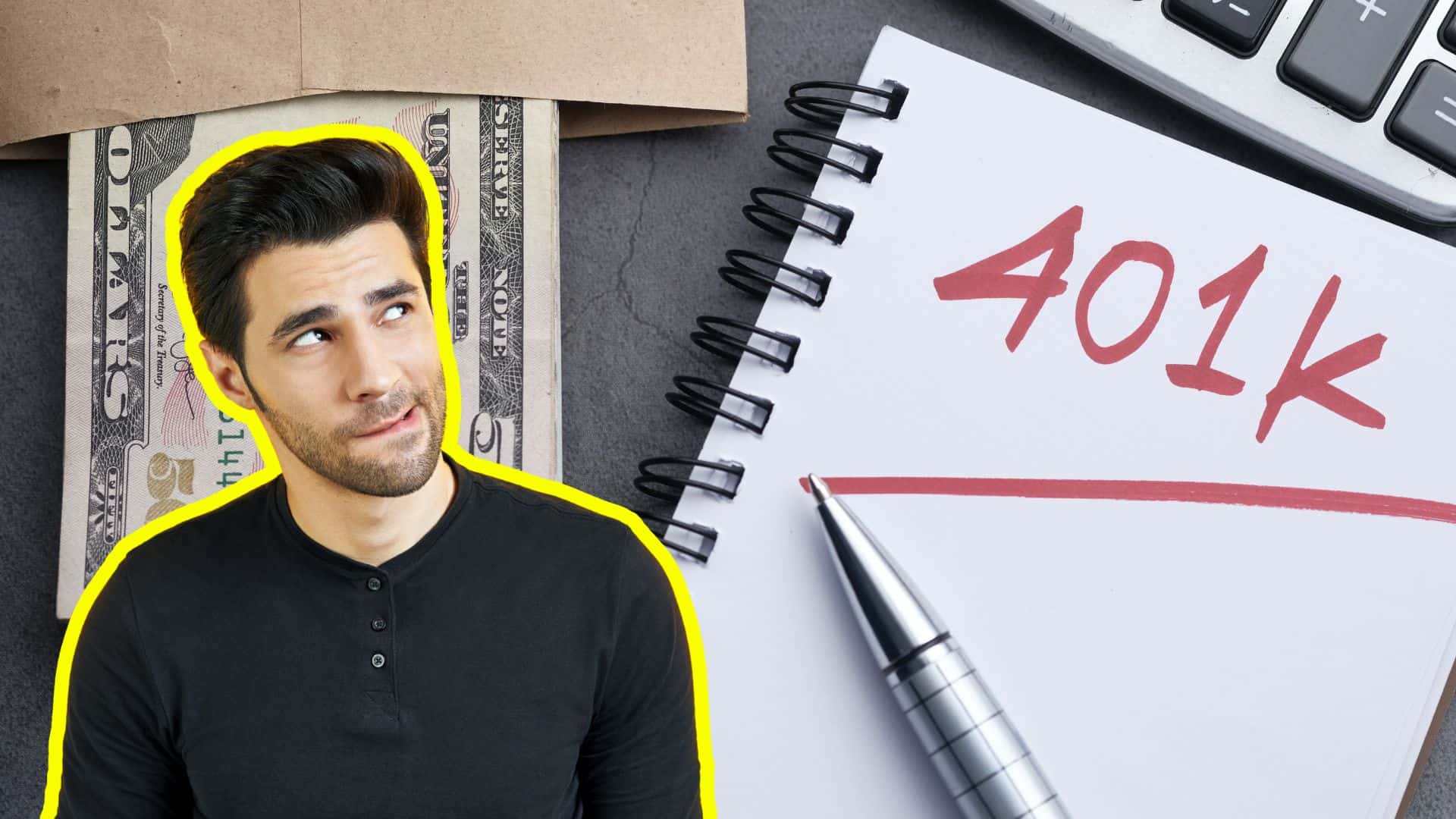Personal Finance
I'm 24 and contributing heavily to my 401(k), but my checking account is slim — is this normal?

Published:

Although 401(k) retirement programs have been around since the late 1970s, there remains a lot of confusion about the best way to utilize them. They are great for saving money towards retirement, but there are nuances that don’t always make them the only investment vehicle to use.
A Redditor on the r/Money subreddit found himself similarly flummoxed by the options. He is making almost $100,000 a year, and is contributing about 35% of his paycheck to his 401(k), and in less than two years he has saved almost $43,000 in the account.
His problem is he doesn’t have all that much in his checking account. He wants to save up to buy a house, but because he is saving so much for his retirement, he doesn’t have much available in liquid assets. Moreover, he can’t access his retirement savings until he retires so he wonders if it would be better to just open a regular brokerage account and put the money there where it will be available for him to use when he needs it.
There are a number of problems confronting the Redditor, and the misconceptions about 401(k)s exacerbate the issues he faces.
The 401(k) is a great program to save for retirement. Money is contributed with pre-tax dollars, up to a maximum of $23,000 a year, so it lowers your income. The only problem is the contributions and any earnings made are taxed when withdrawn at retirement.
But there are other options, too. Created less than 20 years ago was a program called the Roth 401(k). It is a blend of a traditional 401(k) plan and a Roth IRA. The latter is a retirement account where contributions are made with after-tax dollars so money withdrawn is tax-free at retirement, but you can only contribute up to $7,000 (it will rise by $500 in 2025).
The Roth 401(k), then, lets workers contribute after-tax dollars whose earnings grow tax-free, but you can contribute the higher $23,000 limit for 401(k)s.
The Redditor actually has a Roth 401(k) with his employer matching 2% of his contributions. His problem, though, is he is contributing too much to the account, well above the permissible level. He could face penalties from the IRS unless he withdraws the excess contributions and any excess earnings before the tax filing deadline.
Beyond that, though, the Redditor has some better choices available to him. I’m not a financial planner, so these are just my opinions, but he should still contribute to his Roth 401(k), though only up to the employer match. There is no reason to pass up an immediate 100% return on his investment. Then he should max out a Roth IRA because of the tax-free earnings.
He might also want to consider a Health Savings Account (HSA) because they are triple tax-advantaged: contributions are pre-tax, lowering his income, earnings grow tax-free, and withdrawals for eligible medical expenses are also tax-free. Many planners say to prioritize the HSA over a Roth IRA because healthcare expenses are likely to be your biggest expense in retirement. The maximum contribution for an HSA is $4,150.
Only then should he consider going back and maxing out his Roth 401(k). The Redditor should also ensure he has an emergency fund with three to six months of living expenses, and if he is saving up for a house, consider a high-yield savings account.
As you should really only invest in the stock market with money you can afford to lose, and don’t need it for a minimum of three to five years, but preferably a decade or more, a regular brokerage account should be at the bottom of the list. It’s not a place you want to put money you are saving for a house as you could lose it all.
As great as 401(k) plans are to help you save for retirement, there are ways to prioritize your savings so you get the most out of each investment vehicle at the lowest cost to yourself.
That’s why it is important to consult with a financial and tax professional who can lay out a personalized plan tailored to your specific situation.
The last few years made people forget how much banks and CD’s can pay. Meanwhile, interest rates have spiked and many can afford to pay you much more, but most are keeping yields low and hoping you won’t notice.
But there is good news. To win qualified customers, some accounts are paying almost 10x the national average! That’s an incredible way to keep your money safe and earn more at the same time. Our top pick for high yield savings accounts includes other benefits as well. You can earn up to 3.80% with a Checking & Savings Account today Sign up and get up to $300 with direct deposit. No account fees. FDIC Insured.
Click here to see how much more you could be earning on your savings today. It takes just a few minutes to open an account to make your money work for you.
Thank you for reading! Have some feedback for us?
Contact the 24/7 Wall St. editorial team.